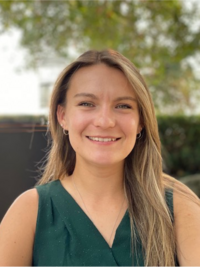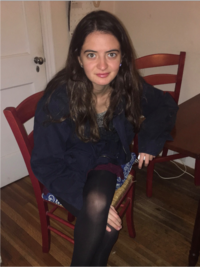Martin Meyer
Martin’s research mainly focuses on the coherence between descriptive beliefs (people’s beliefs about the world). Under what conditions do these beliefs change? How far do they generalize? He draws inspiration from classic cognitive psychology, clinical psychology, and the history of philosophy.
Mandy McCarthy
 Mandy’s research focuses on how children and adults come to understand mechanism and causality, as well as our subjective evaluations of what characterizes a good and useful explanation. Specifically, current studies investigate how cues such as jargon and pedagogical insight impact children’s and adults’ judgement of the usefulness of explanations. Other studies investigate how exposure to mechanistic explanations impacts our conceptions of the world. Specially, Mandy is interested in how learning mechanism might make people more confident - and perhaps overconfident - in their willingness to challenge claims.
Mandy’s research focuses on how children and adults come to understand mechanism and causality, as well as our subjective evaluations of what characterizes a good and useful explanation. Specifically, current studies investigate how cues such as jargon and pedagogical insight impact children’s and adults’ judgement of the usefulness of explanations. Other studies investigate how exposure to mechanistic explanations impacts our conceptions of the world. Specially, Mandy is interested in how learning mechanism might make people more confident - and perhaps overconfident - in their willingness to challenge claims.Mandy can be reached at amanda.mccarthy@yale.edu.
Maureen Gill

Maureen is a J.D./Ph.D. student at Yale Law School and the Yale Department of Psychology. Her interests lie at the intersection of cognitive science and tort law, including how people reason about causation and artifacts in products liability and toxic tort cases. She is also interested in interdisciplinary approaches to behavioral finance.
Maureen can be reached at maureen.gill@yale.edu.